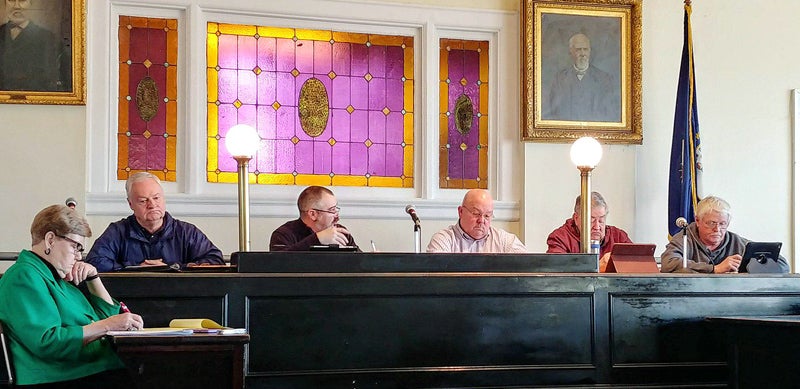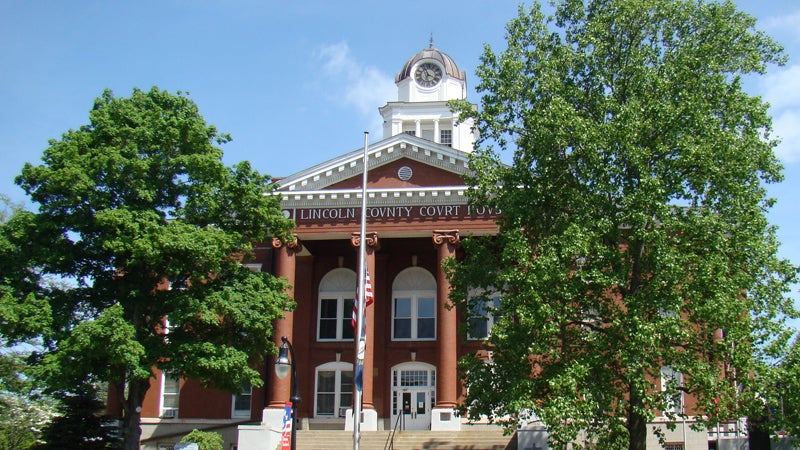Lincoln County cities sue fiscal court over water meter fees
Published 5:30 am Thursday, March 8, 2018

- Photo by Abigail Whitehouse
STANFORD — All three incorporated cities in Lincoln County have joined together and filed a lawsuit challenging the Lincoln County Fiscal Court’s authority to force water companies in the county to collect fees placed on water meters. The fee, designed to fund Bluegrass 911 services, went into effect March 1.
For nearly five years, the debate over fees on water meters to fund 911 services has captured the attention of local governments across the state as it played out in the Kentucky Supreme Court and Court of Appeals.
After a Kentucky Court of Appeals ruling last year, the constitutionality of imposing a fee on water meters to fund 911 services is no longer in question; instead, the Lincoln County cities are challenging the authority of the fiscal court to require them to levy the fee.
No lawsuit was filed against Lincoln County during the last five years of debate on the issue, but that changed last week as Hustonville, Crab Orchard and Stanford (acting through the Stanford Water and Sewer Commission) filed a lawsuit in Lincoln County Circuit Court.
Defendants named in the suit include the fiscal court, Judge-Executive Jim Adams and county magistrates David Faulkner, Lonnie Pruitt, Johnnie Padgett and Joseph Stanley — all in their official capacities.
The suit challenges the fiscal court’s ordinance, which placed a $4-per-month fee on active water meters and replaced fees that were originally imposed on landline telephones to fund 911 services.
The ordinance also states that every water company, association or entity operating a water distribution system in Lincoln County “shall collect the herein established service fee and remit amounts so collected, on not less than a quarterly basis, to Bluegrass 911 Communications and shall be permitted to withhold 3 percent of these monies for administration of this service fee.”
The suit alleges that the ordinance unlawfully imposes a service fee for receiving water service to certain occupied households, businesses and agribusinesses and argues that the service fee is a rate or charge as defined by KRS 278.010 (12), and therefore usurps the Public Service Commission’s (PSC) jurisdiction.
KRS 278.010 (12) states the PSC has exclusive jurisdiction over “rates” and “service.”
“The Fiscal Court exceeded its authority in exercising control over separate political and governmental entities in requiring the City of Stanford, the City of Hustonville and the City of Crab Orchard to collect and remit a service fee of the Lincoln County Fiscal Court,” the suit states.
The suit also argues that requiring city employees to expend time and resources for the collection of a service fee of the fiscal court, and failing to reimburse the plaintiffs for the costs to be incurred for services mandated by the ordinance, also exceeds the fiscal court’s authority.
The cities argue that the 3 percent set aside for administrative fees associated with the collection of the service fee is “unreasonably low, inconsistent with law and does not amount to just compensation for any taking that may occur.”
“The amounts authorized to be retained are solely determined by the fiscal court and do not justly compensate Plaintiffs for the demands imposed on them by the ordinance; thus, the ordinance will cause the plaintiffs to suffer a financial loss,” the suit states.
Additionally, the cities’ suit argues that the ordinance is “impermissibly vague” and violates Section 2 of the Kentucky Constitution, which provides a statute is “impermissibly vague if it is written in a manner that encourages arbitrary and discriminatory enforcement.”
“The ordinance is silent as to who determined which customers must pay the service fee — Lincoln Fiscal Court or water distribution systems,” the suit states. “There are no guidelines in the ordinance to guide the plaintiffs in determining which households, businesses and agribusinesses are ‘occupied.’”
The ordinance is also vague about how to address situations in which customers don’t pay the required service fee, the suit argues, and does not make clear whether the plaintiffs are still required to remit the service fee if their customers fail to pay it.
“Because the ordinance is silent on these and other aspects related to the enforcement and responsibilities of the plaintiffs and the fiscal court, it does not provide fair notice as to what conduct is required or prohibited.”
Also lacking in the ordinance is a sufficient standard for calculating and charging the service fee for customers who are opening or closing their service, according to the suit.
“The ordinance requires plaintiffs to serve as the revenue collector for Lincoln County for a fee that has no relationship to the actual cost of providing such billing and collection services,” the suit states. “The ordinance, in effect, commandeers the billing system, the associated work hours of plaintiffs’ employees and other valuable property of the plaintiffs for the benefit or Lincoln County and to plaintiffs’ detriment.”
Jonathan Baker, attorney for both Stanford and the City of Hustonville, and Damon Talley of Stoll Keenon Ogden PLLC, filed the suit March 2.
As of Tuesday, no responses had been filed on behalf of the county or fiscal court officials but Judge-Executive Jim Adams spoke briefly before entering executive session to discuss the pending litigation.
“We just got served so we haven’t had time,” he said.
Lincoln County Attorney Daryl Day said the Kentucky Association of Counties could step in to provide the county with legal representation.
“They’re already defending Garrard County. This is like a photocopy of the new Garrard County lawsuit with the names changed, is all it is,” Day said.





